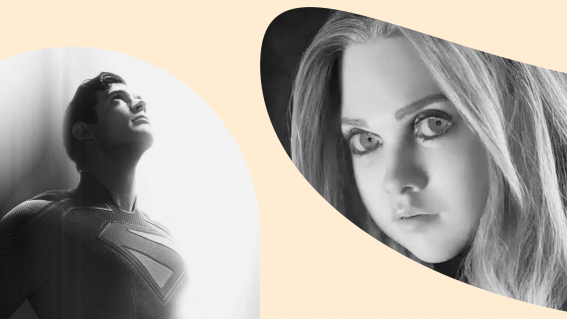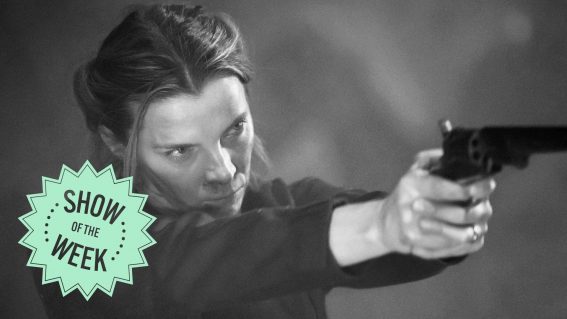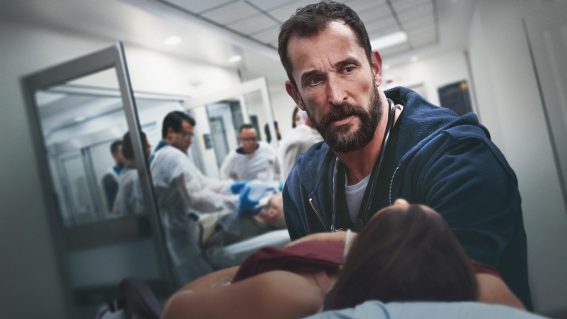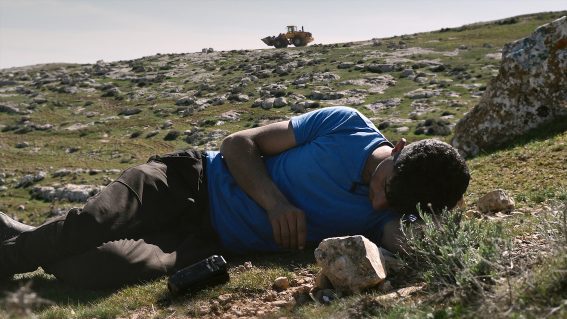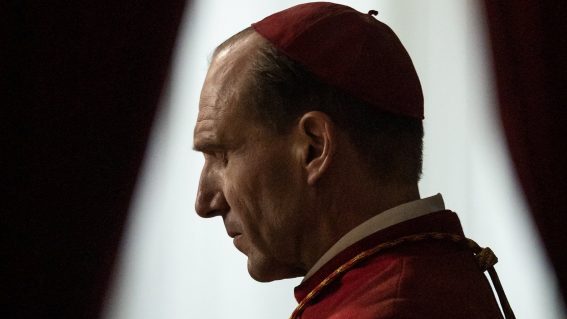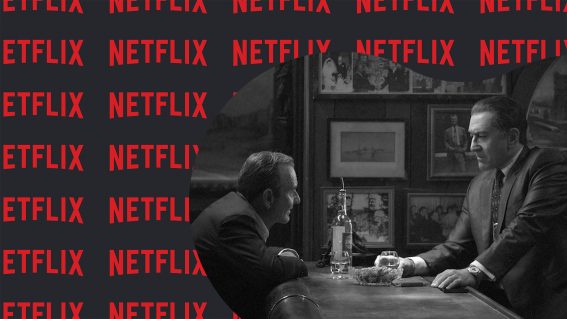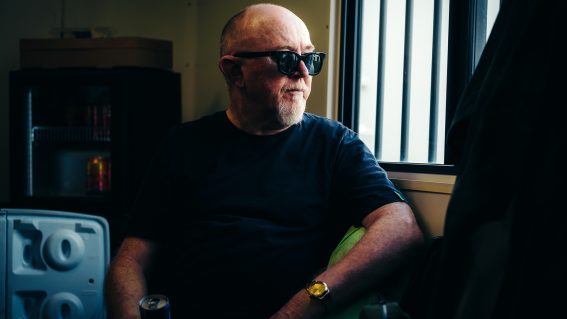Undone is an exquisite time travel drama from the creators of BoJack Horseman
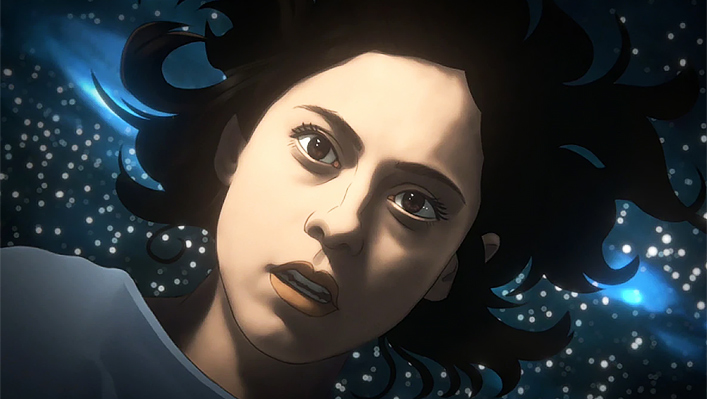
You’ve never seen a TV show quite like Undone, a visually ravishing drama about a woman trying to discover the truth about her father’s death.
Coming to terms with Amazon Prime’s exquisite eight-part series Undone involves contemplating two kinds of texture: aesthetic and emotional. The former slaps you on the face with its loveliness. The latter grows – festers, you could say – as we are drawn more and more into the discombobulated mindframe of the protagonist Alma (Rosa Salazar). She is experiencing a mind-melting turning point in her life, somewhere between a meltdown and a rebirth.
The show, from Bojack Horseman creators Raphael Bob-Waksberg and Kate Purdy, was sculpted using digital rotoscoping. This process is a hybrid of live action and animation, essentially allowing filmmakers to draw over the top of real footage, creating a hypnagogic middle tier of reality: as if belonging in the space between consciousness and sleep.
The technique was memorably deployed in an experimental 2001 feature film from Richard Linklater called, after all, Waking Life, which strings together a series of dream-like interactions between a protagonist and a bunch of babbling strangers. These big-thinking fat-chewers ruminate about standard, everyday sort of matters – such as metaphysics, existentialism, posthumanity and … pinball.
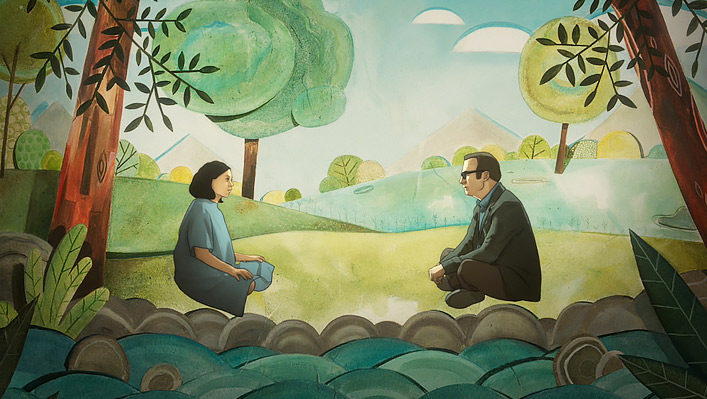
Director Hisko Hulsing creates a similar headspace in Undone, using rotoscoping to create a world that is sort of real and sort of not. The episodes are in snackable 22 minute increments, and the novelty of its surreal visual style never wears off – because of Hulsing’s attention to that second kind of texture. The emotional kind. The writers’ focus on Alma’s thoughts and feelings keeps the show grounded, even when she finds herself ping-ponging between far-flung realms of her psyche.
The first scene in episode one captures Alma driving recklessly, with tears streaming down her face, before wrapping her car around a pole in a very bad crash. The next scene positions this moment in an intriguing context: as a life transforming game-changer that, rather than sending her into terrible health or oblivion, throws her out of humdrum existence and into a fantasy land. Alice tumbling down the rabbit hole, by way of a TAC commercial.
“I’m so bored of living,” Alama declares via voice over, as her face rests on the steering wheel and blood drips from her forehead. A subsequent montage runs us through a range of prosaic activities: she wakes up, showers, brushes her teeth and gets dressed. She eats “the same breakfast” then takes “the same commute to work.” Alma is 28-years-old and ashamed that the biggest moment in her day is deciding which brand of beans to buy.
Undone taps into a common but powerful narrative: about escaping the mundanity of day-to-day grind for a life away from the straight and narrow. The subsequent headtrip is less Walter Mitty than Donnie Darko, the protagonist tumbling through time while in regular conversation with her deceased father Jacob (Bob Odenkirk).
Yep. She time travels. It’s, er, complicated. Jacob is sort of like a time tour guide, offering various bits of advice along the way – some of the fatherly kind, and others as if he were a concierge working for a portal built by Aldous Huxley, opening and closing the doors of her perception. And kind of as if he were the “there is no spoon” kid but grown up, deceased and returned to life. Like I said. Complicated.
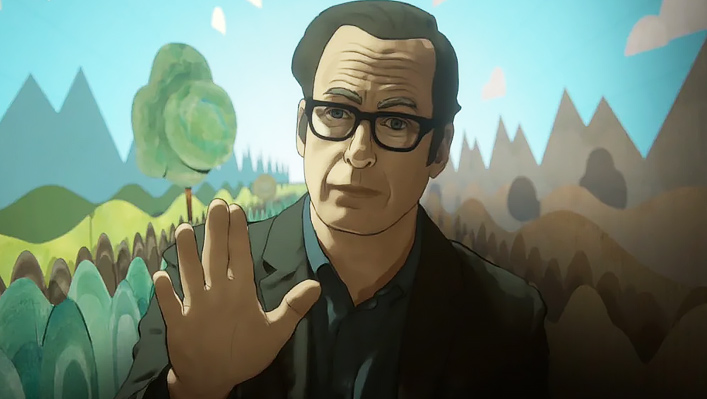
In one important early scene, Jacob gives Alma a Morpheus-like ultimatum. She can take the blue pill and return to the life she was living, with the daily routine and the beans and the comfort of conformity. Or she can experience – expressed in words to this effect – a thrilling destabilization of consciousness. Using a visually engaging, pressure-packed approach somewhere between Run Lola Run‘s rapid photo montages and the fluid, time-travelling arc of Up’s brilliant opening sequence, Hulsing shows the rest of Alma’s life playing out in the conventional way, from the birth of her baby to old age and death. The life she could have chosen.
It is hardly spoiling anything to say that she opts for the dramatically interesting path, which involves the aforementioned detective story component and various forays that cheat the rules of existence on a single continuous timeline (or, says Jacob, “any timeline at all”). There are so many memorable, dramatically and stylistically sequences scenes that it is difficult if not impossible to count them. One is a dialogue exchange that takes place between Alma and Jacob in a tiny toy car, suspended in time and frozen in the air.
Those moments are trippy; like watching somebody astral project through their own consciousness. And yet that second kind of texture – the emotional kind – keeps the series hooked on human thought and feeling. Undone has a disarming ability to suddenly switch gears and drop a soul-stirring profundity – such as the following self assessment: “we’re broken people, and broken people break people.”
When I heard that line, it reminded me of something from another show, but I couldn’t place the reference. A couple of days later I realised it was a moment from BoJack Horseman. At the beginning of the second season, BoJack has resolved to act positive. He is jogging, drinking health shakes, listening to a self-improvement app. But his own mother cuts him down and sends him into a relapse. “You were born broken,” she says. “You’re BoJack Horseman. There’s no cure for that.”
Undone explores a similar sentiment: about the pain that comes from understanding that while we can escape many things in life, we can never ourselves. A bit of a downer, maybe. But these spirited and highly inventive shows have a hell of a lot of fun making the point.

